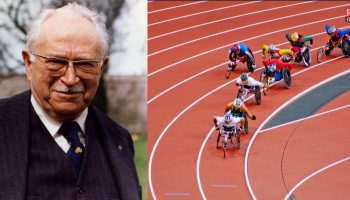When it comes to training for sports, we often focus on the physical aspect – intense workouts, strength training, and endurance tests. But have you ever stopped to think about what’s fueling all that exercise? That’s right, it’s the food you eat!
The role of nutrition in sports training is like the role of gasoline in a car; without it, you’re not going anywhere. But with the right type and amount, you’re on your way to winning performance.
Let’s dive in to explore the importance of proper nutrition in training for sports to achieve success.
Hydration – The Key To Unlocking Athletic Potential

Before we get into the specifics of nutrition, let’s first address hydration. Water is crucial for athletes as it helps regulate body temperature, lubricates joints and muscles, and aids in digestion. Dehydration can lead to fatigue, dizziness, and decreased performance.
During intense training sessions or competitions, your body loses a significant amount of water through sweat. To make up for this loss, it’s important to hydrate before, during, and after exercise.
Don’t wait until you feel thirsty as that’s a sign of dehydration already setting in. Instead, aim to drink at least 8-10 glasses of water throughout the day and increase your intake during training.
Fueling Your Body With Proper Nutrition
Now, let’s talk about nutrition. Just like a car needs the right fuel to run smoothly, your body needs the right nutrients to perform at its best. Here are some key aspects of proper nutrition that will help you achieve success in training for sports.
Macronutrients – Carbs, Proteins, And Fats
Macronutrients are the three main components of our diet – carbohydrates, proteins, and fats. Each plays a vital role in fueling your body during exercise.
Carbohydrates are the primary source of energy for high-intensity activities, such as sprinting or weightlifting. They are quickly broken down into glucose, which is then used by the muscles for energy. Good sources of carbs include whole grains, fruits, and vegetables.
Proteins are essential for building and repairing muscles. During training, your muscles experience micro-tears, and protein helps repair them to become stronger. Include lean sources of protein like chicken, fish, eggs, and legumes in your meals.
Fats also provide energy but at a slower rate compared to carbs. They also play a role in hormone production and nutrient absorption. Choose healthy fats like avocados, nuts, and olive oil.
Read Also: Exploring The Most Unique And Creative Sports Awards Ideas
Micronutrients – Vitamins And Minerals

While macronutrients provide the main source of energy, micronutrients are equally important for overall health and athletic performance. They include vitamins and minerals that support various bodily functions.
Vitamins like A, C, and E act as antioxidants, protecting cells from damage during exercise. Minerals like iron and calcium are crucial for oxygen transport and bone health, respectively. Eating a varied diet that includes a variety of fruits, vegetables, whole grains, and lean proteins is the best way to ensure you’re getting all the necessary micronutrients.
Interested in digging deeper into sports nutrition? Check out the comprehensive Sports Nutrition Certification program on the company website. This program offers an in-depth look into the science behind sports nutrition, providing you with the knowledge and skills to optimize your athletic performance through food.
Learn All About Training For Sports

So, let’s wrap it up! Eating right is super important when training for sports. Remember, you need fuel to power you through workouts, and nutrients to keep you healthy. Don’t forget to drink lots of water too! Follow these tips and you’re on your way to becoming a top athlete. Happy training!
Did you find this article helpful? Check out the rest of our blog.
Read Also:




























